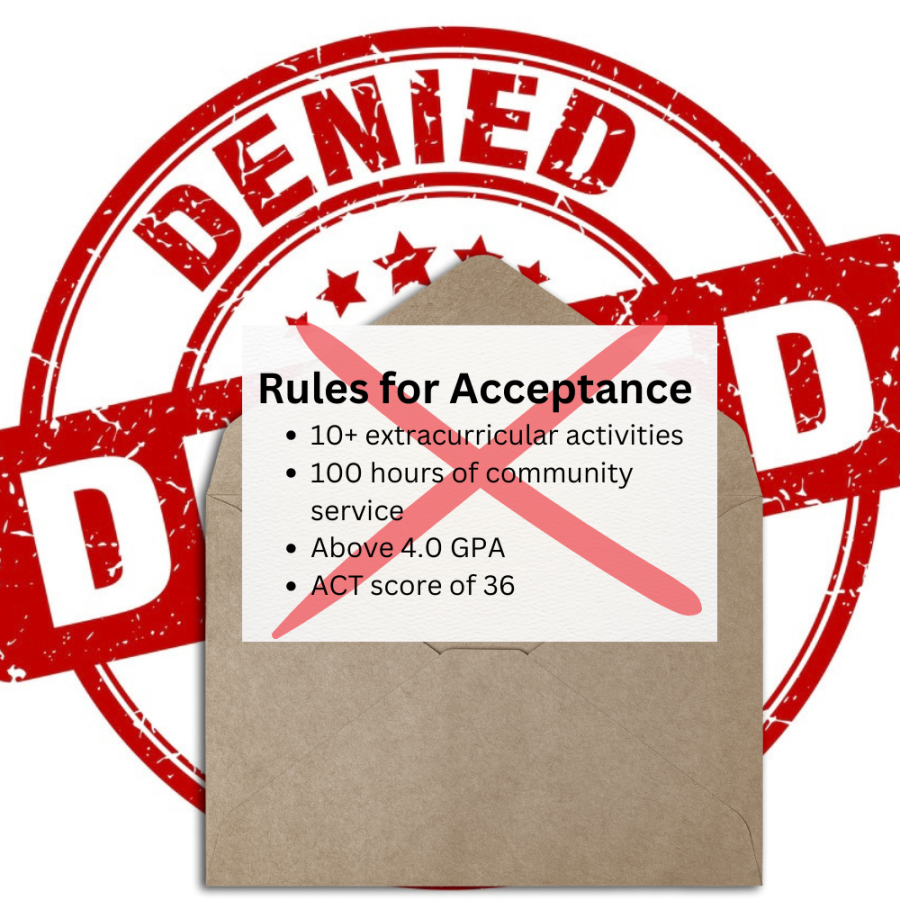The college admissions system has evolved into a competition marked by applicants’ extensive lists of superfluous activities. These padded resumes consist of extracurriculars, leadership positions and service that have been manipulated to become an asset to a student’s application.
Rather than partaking in student groups and doing service projects with the intentions of helping people, students’ motives have been reversed. Students are “giving back” and “leading groups” for themselves and their own success rather than for the benefit of any cause.
PVHS Counselor Valerie Tucker, has experience in assisting students in the college application process. “I think that it is a huge misconception among students that quantity is important when it comes to extracurricular activities. In all my work with colleges and universities (including participating in admission and scholarship committees) quality is far more important,” Tucker continued. “It is very clear to schools when students try to pad their resumes and list a bunch of activities, but then can’t speak to those experiences with any significance.”
Through her efforts in aiding students, Tucker has noticed that students try to rack up extracurriculars to make themselves seem more involved. However when students do this, they tend to have little involvement and interest in all their activities.
Senior Emily Goodpaster has noticed this trend within her experience in college applications. “For example, they’d rather have you be the president of one club than be a member of five, or team captain of a varsity sport rather than average in multiple. They want to see that you can succeed and show character,” she stated.
By allocating one’s time to a few activities that they are passionate about, their passion shines through the screen and becomes an asset to a student’s application. Admissions committees want to see how a student has influenced and been influenced by their activities because that shows the true character of a student.
Tucker continued, “At the end of the day, admissions and scholarship committees want to know who you are, not what you have listed on a resume.”
Students are often led to believe that colleges admire those with several extracurriculars because it makes them seem “involved.” However, when students join clubs just to build their resume, they are really doing a disservice to themselves. Rather than spending their valuable time on activities that are meaningful to them that will actually read as genuine to admissions committees, they aimlessly join clubs to lengthen their activity list.
Unlike other resume-building high school students, Goodpaster has put forth intentional thought when deciding on her extracurricular activities. As a member of the varsity girls volleyball Team and a student that challenges herself through several rigorous courses, Goodpaster doesn’t have much free time.
“When I was participating in the bulk of my extracurriculars during my junior year and summer, I did not feel as if I was checking things off for my college application…It was a more enjoyable and productive experience. That is ultimately what will set you aside from the rest; balancing a class load with activities that show character and achievement, not just participation,” Goodpaster continued.
By ensuring the activities Goodpaster put her efforts toward reflected her interests and character, she was able to enjoy these activities. In addition, when it came time to write about the significance of her activities, Goodpaster could truly speak about what being a part of these groups helped her with.
The misconception among students that they must over involve themselves in activities for the purpose of applying to colleges has altered the intention of their high school experience. Many believe in order to get into college they need a long list of extracurriculars, several leadership positions and hours of community service. However, as Tucker and Goodpaster have demonstrated, colleges truly care to see who a student really is, rather than what a student has done.









